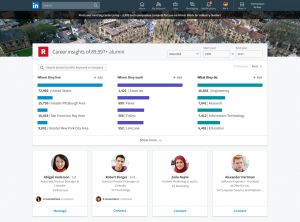— August 30, 2018

Free-Photos / Pixabay
It’s easier to join the gig economy than ever before. From apps like Lyft and Seamless to freelance platforms like Upwork, thousands of side hustle opportunities are at our fingertips every day.
But many people who participate in the gig economy also hold down a full-time job. Some managers are understandably nervous about their employees might be distracted by their side jobs.
Meanwhile, employees are often uncertain about whether their participation in the gig economy could put their current full-time jobs at risk.
Managers can use this article to learn the basics of what it means to live during the gig economy era – and maybe even learn to embrace it.
Employees Want Clear Policies About the Gig Economy
Although 36% of workers currently have a side gig (and an additional 17% are looking for one), few companies have clear policies about whether it’s okay for workers to participate in the gig economy.
Without clear policies, employees are left with anxiety that they might be unintentionally breaking the rules.
Similarly, managers who feel uneasy about an employee’s side hustle might be unable to set boundaries without a policy to fall back on.
Complicating matters further, employment law on how to classify gig economy workers is a work in progress. Your side hustling employees might struggle to navigate issues such as taxes and benefits.
To put it in more concrete terms, imagine your employee takes a sick day after coming down with the flu – but their side gig doesn’t allow the time off your employee needs to get back on her feet and back in your office.
Managers can help by drawing up clear policies and putting them in writing in an employee handbook. These policies should include:
- A definition of what types of side jobs are not allowed due to conflicts of interest
- Whether an employee needs their manager’s permission before taking on a side gig
- If employees can use their breaks or PTO for their side gig
In almost all cases, these policies should be as liberal as possible. Managers should avoid interfering with their employees lives outside of work, unless their side jobs will negatively affect their performance or the company’s reputation.
Employees Join the Gig Economy to Earn Money
Some workers join the gig economy to learn new skills or prepare for a career transition, but most sign up to earn extra cash.
The Penny Hoarder, a popular personal finance outlet, reports that the gig economy offers mixed results for those who turn to it to boost their earnings.
Some gig economy workers, such as Airbnb hosts or Uber drivers, might earn much less than their full-time hourly rate. Others, including developers and writers, might earn much, much more.
Businesses that don’t currently provide competitive compensation are especially at risk for a workforce that’s distracted by opportunities in the gig economy.
But simply paying workers more doesn’t guarantee their commitment. Minimal raises, such as boosting earnings by less than $ 1/hour, are unlikely to have any impact on employees’ motivation, and studies show that money isn’t the only factor that promotes commitment and job satisfaction.
Instead, managers should make sure that their employees fully understand how benefits contribute to overall compensation. Few employees are willing to give up health insurance, paid time off, commuter perks, and more – and virtually no gig economy roles are positioned to offer these benefits.
The Gig Economy Provides Access to Highly Motivated Workers
Managers can also turn to the gig economy to hire from the gig economy’s enormous talent pool of short term workers.
Gig economy workers are most helpful for short-term projects that require specialized skills, such as coding, graphic design, or content development.
In his work at Shopify, COO Harvey Finkelstein observes that the gig economy can offer a path for people to turn their passion projects into full-time employment. Businesses can benefit from hiring highly motivated short-term workers who have a “do what you love” mentality.
When Adobe surveyed workers about their experiences, people said they are motivated to take on side jobs that they’re passionate about. These workers are more likely to bring energy and determination to their work.
Next time your team is facing tight deadlines and limited bandwidth, a freelance or contract worker can help reduce the pressure on individual employees and help your company succeed.
Businesses Can Benefit From the Gig Economy
Although managers might worry that the gig economy presents distractions, it is becoming a common fixture and source of income in workers’ lives.
Managers should establish clear company policies about what gig economy work is and is not allowed. They should also ensure that employees are fully informed about how benefits factor into their overall compensation to prevent the gig economy from undermining motivation at work.
Finally, managers can turn to the gig economy for short-term help from highly motivated workers.
Business & Finance Articles on Business 2 Community
(28)







